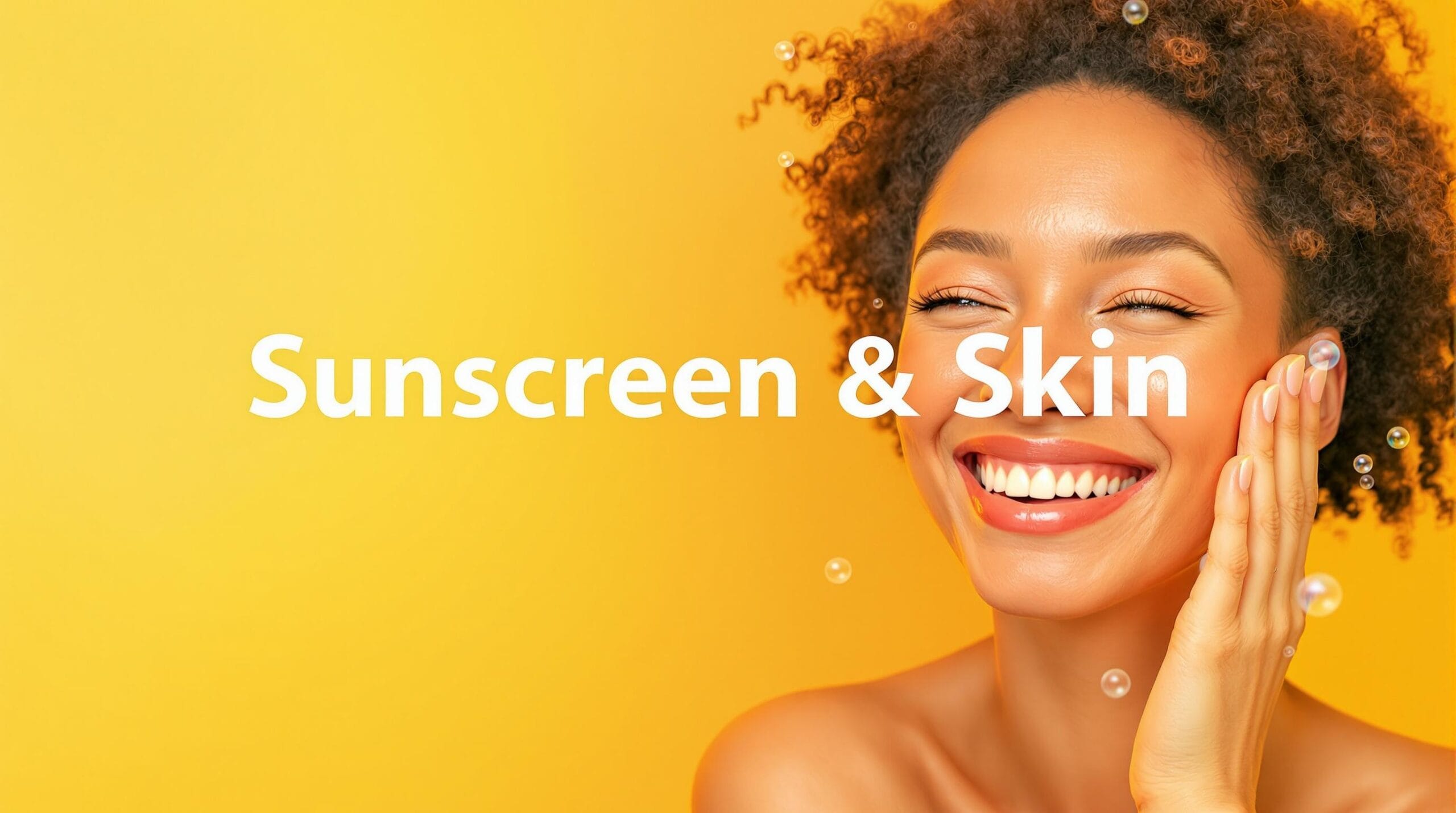
Many people worry that using sunscreen could lead to acne breakouts. This concern can make sun protection seem like a trade-off for those with acne-prone skin. The purpose of this article is to debunk myths, clarify the connection between sunscreen and acne, and offer solutions for choosing the right sunscreen. Understanding how sunscreen works is essential for maintaining healthy skin while protecting it from the sun.
The Flawless Skin Myth: Can Sunscreen Cause Acne?
Sun Protection vs. Skin Protection
Sunscreen is critical for protecting skin from harmful UV rays. Some individuals believe that applying sunscreen will lead to breakouts. However, this myth does not fully account for the protective benefits sunscreen offers. Using sunscreen prevents skin damage, which can otherwise lead to issues like pigmentation or premature aging.
Acne Triggers: What to Watch Out For
Certain ingredients in sunscreens can cause breakouts, especially for those with oily or sensitive skin. Heavy oils and comedogenic formulations may contribute to acne. Knowing the right ingredients to avoid can help you enjoy sun protection without compromising your skin health. Look for labels that indicate non-comedogenic properties or ingredients specifically designed for acne-prone skin.
Ingredients Under the Microscope: What to Avoid
Comedogenic vs. Non-Comedogenic
Comedogenic products can clog pores, leading to breakouts. Key ingredients to avoid include heavy oils like coconut oil and certain silicones. Instead, opt for non-comedogenic formulations. These products are less likely to clog pores and cause acne.
The Importance of Formulation
The type and texture of gel-based sunscreens are usually lighter and less likely to cause breakouts than thicker cream formulations. Mineral sunscreens, typically containing zinc oxide or titanium dioxide, are often better tolerated by sensitive or acne-prone skin. When selecting a sunscreen, consider the formulation to achieve the best outcomes for your skin.
Your Skin Type Matters: Customizing Your Sunscreen
Oily, Dry, or Combination Skin – What’s Best?
Choosing the right sunscreen can vary based on skin type. For oily skin, lightweight, gel-based sunscreens work best. For dry skin, moisturizing formulas with added hydration can be beneficial. For combination skin, a balanced formulation that doesn’t overly dry or clog pores is ideal. Specific products known for being acne-friendly can also help ease the selection process.
How to Choose the Right SPF
SPF selection is essential in protecting skin. A minimum SPF of 30 is recommended. Test how different SPFs interact with your skin type before settling on one. Patch testing can provide insights into how your skin reacts to various formulations. This step is critical, especially if you have sensitive skin prone to breakouts.
Busting Common Myths: Sunscreen Q&A
Does Heavy Sunscreen Always Cause Breakouts?
It’s a common belief that heavy sunscreens automatically trigger acne. However, that’s not always the case. Some people may find thicker sunscreens beneficial, especially if they offer adequate hydration without being comedogenic. Individual reactions can vary significantly.
Is Mineral Sunscreen Acne-Friendly?
Mineral sunscreens are often recommended for acne-prone skin. They sit on top of the skin and reflect UV rays rather than absorbing them. Many individuals with acne find mineral options gentler and less likely to cause breakouts, making these a good alternative.
Sunscreen Application Tips: Flawless Protection!
Layering Your Skincare for Success
Incorporating sunscreen into your skincare routine requires proper layering. Apply sunscreen after moisturizer but before makeup for optimal results. This ensures adequate protection against the sun while maintaining skin health. The order of your products matters in achieving flawless results.
How Often Should You Reapply?
Reapplying sunscreen every two hours is crucial, especially after sweating or swimming. When using makeup, consider powdered or spray sunscreen for easy reapplication. Ensuring consistent protection can help you maintain clear skin while enjoying the outdoors.
Conclusion: Make Sunscreen Your Best Friend!
It’s vital to use sunscreen despite any concerns about acne breakouts. Finding the right formulation for your skin type can mitigate these worries. Experiment with various sunscreens to see what works best for you. Consulting with dermatologists can provide further assistance in addressing personal skin needs.
FAQs: Your Burning Questions Answered!
What if I already have acne? Can I still wear sunscreen?
Yes, you can wear sunscreen even if you have acne. It’s essential to choose non-comedogenic options that protect your skin while keeping it clear.
Will switching to a new sunscreen clear my skin?
While changing your sunscreen can help, it’s crucial to address overall skincare habits. Combining an appropriate sunscreen with a healthy skincare routine is key to achieving clear skin.
For more information on suitable sunscreen options, consider checking this resource that provides insights tailored for various skin types.
The Shocking Truth About Silicone Sunscreen: Is It Really Good for Your Skin? >>>







